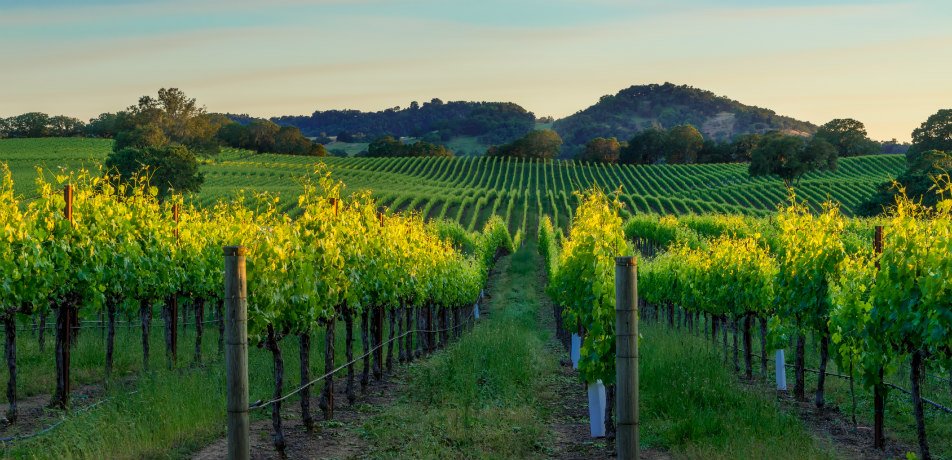Sonoma County, nestled in the heart of California’s wine country, is not only renowned for its exceptional wines but also for its commitment to sustainability. This blog post delves into the eco-friendly practices of Sonoma County wineries, highlighting their efforts to preserve the environment while producing world-class wines. Whether you’re a wine enthusiast or an eco-conscious traveler, exploring these sustainable wineries offers a unique and enriching experience.
Embracing Sustainable Viticulture
Sustainability in Sonoma County’s wineries begins in the vineyards. Many wineries have adopted sustainable viticulture practices aimed at minimizing environmental impact and promoting biodiversity. These practices often include:
- Organic Farming: Some wineries practice organic farming, which involves avoiding synthetic pesticides and fertilizers in favor of natural alternatives. Organic certification ensures that grapes are grown in harmony with nature, maintaining soil health and biodiversity.
- Biodynamic Farming: Biodynamic farming takes organic practices a step further by incorporating holistic principles and lunar cycles into farming practices. It emphasizes soil health, biodiversity, and the use of natural composts and preparations to enhance vineyard vitality.
- Integrated Pest Management (IPM): IPM strategies focus on preventing pests and diseases through natural means, such as introducing beneficial insects, using cover crops to attract beneficial organisms, and implementing traps and barriers to minimize pest damage.

Water Conservation Efforts
Water conservation is a critical aspect of sustainable viticulture in Sonoma County, where dry summers and limited water resources necessitate efficient water management. Wineries implement various strategies to reduce water usage, such as:
- Drip Irrigation Systems: Drip irrigation delivers water directly to the roots of grapevines, minimizing evaporation and runoff compared to traditional sprinkler systems. This method ensures that water is used more efficiently, optimizing vine health while conserving precious water resources.
- Cover Cropping: Planting cover crops between vine rows helps prevent erosion, improve soil structure, and retain moisture in the soil. Cover crops also provide habitat for beneficial insects and wildlife, contributing to vineyard biodiversity.
- Recycled Water Systems: Some wineries utilize recycled water for irrigation purposes, reducing their reliance on freshwater sources and minimizing their environmental footprint.
Energy Efficiency and Renewable Energy
Sonoma County wineries are increasingly embracing energy-efficient practices and renewable energy sources to reduce greenhouse gas emissions and energy consumption. These initiatives include:
- Solar Power: Many wineries have installed solar panels to generate clean, renewable energy. Solar power not only reduces reliance on fossil fuels but also lowers operational costs over the long term, making it a sustainable investment for wineries committed to environmental stewardship.
- Energy-Efficient Lighting and Equipment: Wineries are upgrading to energy-efficient lighting systems and equipment, such as LED lighting and high-efficiency winemaking machinery. These upgrades help minimize energy consumption and reduce the carbon footprint of winery operations.
- Waste Management and Recycling: Sustainable wineries prioritize waste reduction and recycling efforts. They implement composting programs to recycle grape pomace and other organic materials, reducing landfill waste and enriching soil health in vineyards.
Certification and Commitment to Sustainability
Many Sonoma County wineries participate in sustainability certification programs to validate their environmental practices and commitment to sustainability standards. Certifications such as:
- California Certified Sustainable Winegrowing (CCSW): Administered by the California Sustainable Winegrowing Alliance, CCSW certification recognizes wineries that adhere to rigorous sustainability standards in vineyard and winery practices.
- LEED Certification: Some wineries pursue Leadership in Energy and Environmental Design (LEED) certification for their tasting rooms and winemaking facilities. LEED-certified buildings meet stringent criteria for energy efficiency, water conservation, and indoor environmental quality.
- Certified Organic and Biodynamic: Wineries that practice organic and biodynamic farming may obtain certification from accredited organizations, ensuring compliance with organic and biodynamic standards in grape production.
Exploring Sustainable Wineries in Sonoma County
When visiting Sonoma County, consider exploring these exemplary wineries known for their sustainable practices:
- Frog’s Leap Winery: Renowned for its organic and biodynamic farming practices, Frog’s Leap emphasizes sustainability in every aspect of its winemaking process, from vineyard management to energy-efficient winery operations.
- Quivira Vineyards & Winery: Quivira is committed to biodynamic farming and regenerative agriculture practices, promoting soil health, biodiversity, and water conservation in its Dry Creek Valley vineyards.
- Iron Horse Vineyards: Iron Horse is a pioneer in sustainable farming and solar energy use. The winery’s estate vineyards are certified sustainable, and its tasting room operates on solar power, reflecting its dedication to environmental stewardship.
- Rodney Strong Vineyards: Rodney Strong integrates sustainable farming practices with water conservation and renewable energy initiatives. The winery’s commitment to sustainability is evident in its vineyard management and LEED-certified hospitality center.
Conclusion
Sonoma County’s eco-friendly wineries exemplify the marriage of environmental stewardship and winemaking excellence. By embracing sustainable viticulture, water conservation efforts, energy efficiency, and renewable energy sources, these wineries contribute to the preservation of natural resources and the health of local ecosystems.
Exploring sustainable wineries in Sonoma County offers not only a taste of exceptional wines but also a deeper appreciation for the dedication and innovation driving the region’s wine industry forward. Whether you’re savoring a glass of wine overlooking vine-covered hills or learning about biodynamic farming practices firsthand, the experience is as enriching as it is environmentally conscious. Join the journey to sustainable sips in Sonoma County and toast to a future where wine and sustainability go hand in hand.

